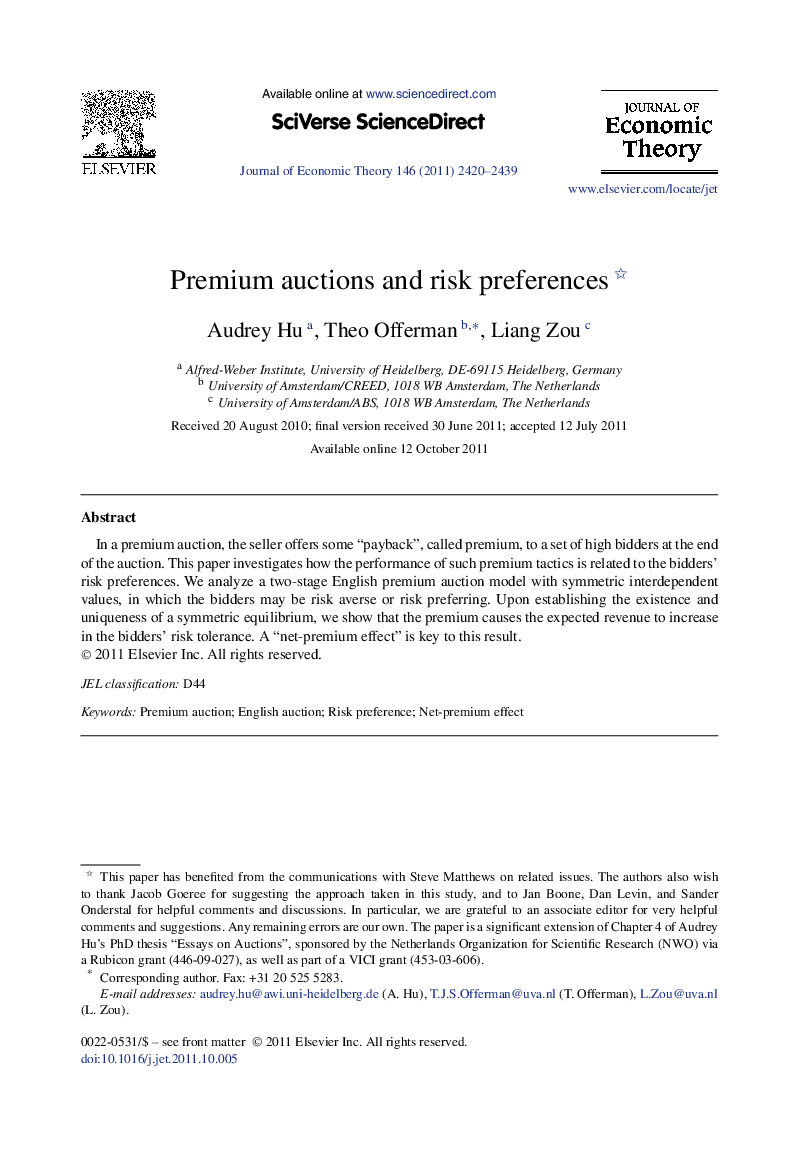| Article ID | Journal | Published Year | Pages | File Type |
|---|---|---|---|---|
| 957246 | Journal of Economic Theory | 2011 | 20 Pages |
Abstract
In a premium auction, the seller offers some “payback”, called premium, to a set of high bidders at the end of the auction. This paper investigates how the performance of such premium tactics is related to the biddersʼ risk preferences. We analyze a two-stage English premium auction model with symmetric interdependent values, in which the bidders may be risk averse or risk preferring. Upon establishing the existence and uniqueness of a symmetric equilibrium, we show that the premium causes the expected revenue to increase in the biddersʼ risk tolerance. A “net-premium effect” is key to this result.
Keywords
Related Topics
Social Sciences and Humanities
Economics, Econometrics and Finance
Economics and Econometrics
Authors
Audrey Hu, Theo Offerman, Liang Zou,
